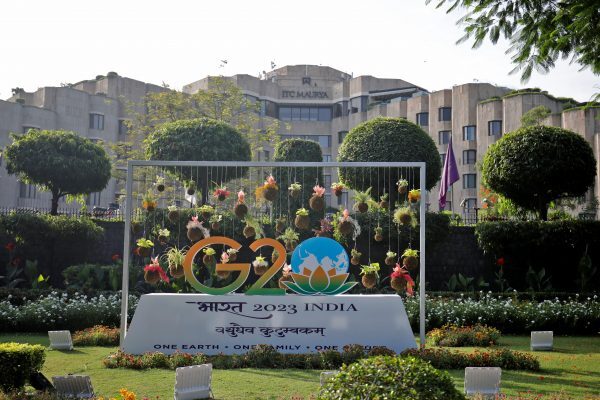G20 support for small island states

Against the contemporary background of strong systemic shocks to the global economy, the Group of Twenty (G20) must address the stagnation in developmental priorities and spur economic growth. As the current steward of the rotating presidency within the G20, India has acquired a unique podium to spearhead discussions on pivotal global challenges.
The G20’s primary focus lies in fostering international economic cooperation, rendering it an indispensable arena for addressing multifaceted economic issues encompassing trade, finance, and sustainability. India’s G20 presidency from December 2022 to November 2023 has led a continued effort in shaping worldwide economic and political dialogues that are crucial for the developing world, such as sustainable debt management and mitigating climate emergencies.
While most developing countries are facing financial stress in the aftermath of the COVID-19 pandemic, the situation in Small Island Developing States (SIDS) is particularly severe. Since tourism accounts for nearly 50 per cent of the GDP and 30 per cent of total employment in most of these countries, the adverse economic impacts of the COVID-19 pandemic were devastating for these countries. Losing out on such revenue has led to external debt piling up, with Seychelles and the Bahamas facing debts reaching almost 200 per cent of their average GDPs by 2020.
Additionally, climate change has increased the vulnerability of critical transport and tourism infrastructure to damage, delays and disruption. Global warming, extreme weather events and rising sea levels threaten airports, ports and coastal resorts, affecting tourism services and operations alongside local lives and livelihoods. Growing climate-related challenges have contributed to increasing debt levels in Caribbean SIDS, which further strains their resources and hinders investment in sustainable tourism practices. The G20’s focus towards SIDS needs to be two-pronged, with an emphasis on debt governance and climate finance.
The critical task before the G20 is to prevent a spate of sovereign debt crises that will harm the international financial system and the sustainable development agenda. So far, the G20’s debt relief initiatives have met with lukewarm success. Under the Debt Service Suspension Initiative (DSSI), eligible Low-Income Countries (LICs) have postponed payments of approximately US$12 billion in debt service payments to official creditors.
The Common Framework for Debt Treatments beyond the DSSI was also set up in partnership with the Paris Club to restructure government debt on a case-on-case basis. But only Chad, Ethiopia, Ghana and Zambia have officially sought assistance from the Framework. The G20 is also seeking to resolve the debt crisis in Sri Lanka outside of the formal Common Framework.
Most LICs and SIDS have avoided the Common Framework due to fears of a rating downgrade and losing access to international capital markets. Without sustainable and long-term solutions for external debt management, the developing world is staring at a ‘lost’ decade. Sustainable debt management should be the top priority for the G20’s upcoming Brazilian and South African Presidencies.
On the climate change front, there is an inherent funding bias of over 80 per cent in favour of climate change mitigation activities. But SIDS and the developing world are in dire need of additional adaptation funds. Such biases against funding adaptation projects by most funding agencies have been criticised by adaptation experts, particularly those from low-income developing countries and SIDS.
In fact, funding agencies like the Green Climate Fund have failed to channel funding to the most vulnerable communities in the affected countries because it has approached its mandate as a ‘bank’ that seeks returns on its investments.
The Asian Development Bank noted that climate funding for the developing world needs immediate assessments, considering how the flow of funds should be instead of the shifting nature of energy demands. The G20 needs to push further for developed countries to shift from a ‘rule-setting’ role to actively financing the Global South’s push to reach better levels of environmental compliance. The Standing Committee on Green Finance should also be given a more active role to oversee such interactions and assist in using instruments.
During its term, India’s G20 presidency has attempted to accentuate topics of paramount significance to the Global South, including mobilising more adaptation funds for SIDS and the developing world. India’s stewardship coincides with a period of global geopolitical unpredictability, compelling the nation to contribute to urgent conversations surrounding peace and stability.
The Indian Presidency’s pinnacle moment will manifest during the G20 Summit on 9–10 September 2023, in New Delhi. The presidency not only underscores India’s burgeoning influence on the world stage but also assumes a pivotal role in shaping the international agenda and nurturing collaboration among the globe’s leading economies. This is all in the pursuit of finding remedies to collective challenges such as equitable vaccine accessibility, climate change, mitigating macroeconomic instabilities and the equitable dissemination of technology.
India’s position within the G20 places it favourably as a representative of the global South due to its economic prowess and historical commitment to developing nations. To alleviate the financial stress faced by SIDS, India can advocate for debt relief, increase development assistance and promote climate finance within the G20.
It can also offer capacity-building programs, support trade facilitation and champion technology transfer. India can back multilateral initiatives and advocate for inclusive global governance reforms, ensuring that the unique needs and voices of SIDS are heard and addressed on the international stage.
Soumya Bhowmick is an Associate Fellow at the Centre for New Economic Diplomacy in the Observer Research Foundation in India.












